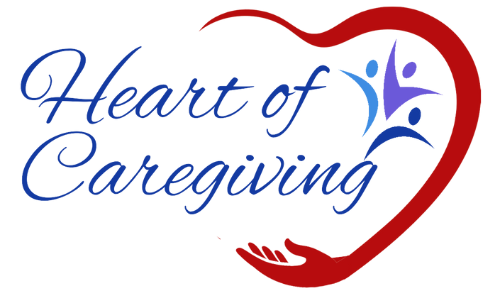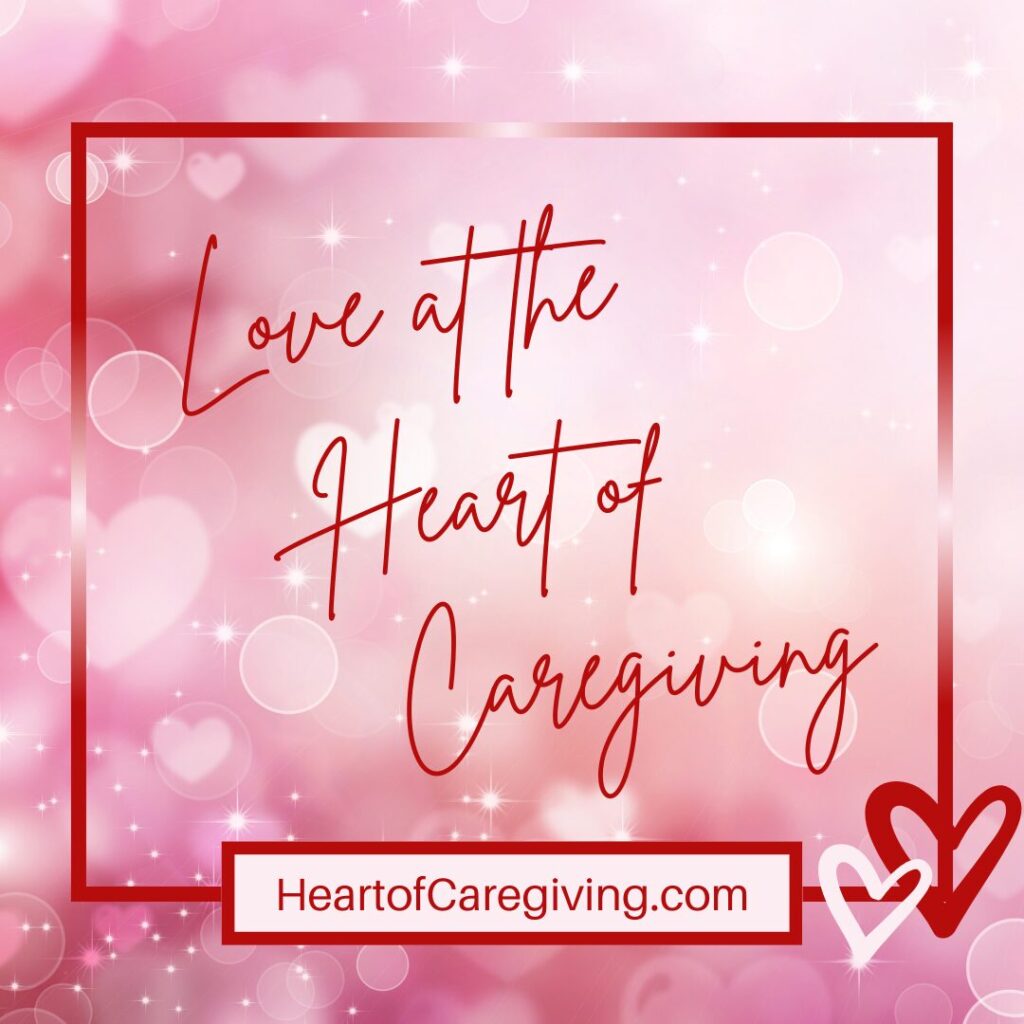Love at the Heart of Caregiving
As Valentine’s Day approaches, store shelves fill with chocolates, flowers, and heart-shaped trinkets. However, for caregivers, the most meaningful gift isn’t wrapped in a box or tied with a bow. Instead, it’s the simple yet profound act of expressing love to the person they care for. And with National Caregivers Day following just two days later on February 16, this is the perfect time to reflect on the role of love in caregiving—and the impact it can have on both the caregiver and the care recipient.
The Best Valentine’s Gift?
Caregiving is often described as an act of service, duty, or even sacrifice. But at its core, it is an act of love. Whether you’re caring for a parent, spouse, sibling, or friend, your role is filled with moments—both big and small—that reflect your deep commitment to their well-being. When love is the guiding force behind your actions, even the most challenging days can hold moments of connection and meaning.
As I share in my book 21 Mistakes Caregivers Make & How to Avoid Them, caregiving presents an opportunity to deepen relationships, heal old wounds, and create lasting memories. It allows us to move beyond past relationship dynamics and show up in the present with open-hearted compassion.
Expressing love in the caregiver-recipient relationship is the best Valentines gift you can give, but expressing love isn’t always easy, especially when caregiving demands are overwhelming. Daily to-do lists, appointments, and exhaustion can make it feel impossible to slow down and be present. Yet, prioritizing love in your interactions—through words, touch, and shared experiences—can transform caregiving from a series of tasks into a journey of deeper connection.
Why Expressing Love Matters

When caregiving becomes a list of endless responsibilities, both the caregiver and the care recipient may feel unseen and unappreciated. Making a conscious effort to express love can:
Overcoming Barriers to Expressing Love
Despite the benefits, expressing love isn’t always straightforward. Some caregivers struggle to find ways to communicate affection, particularly if past relationships were strained. Others may feel too emotionally depleted to prioritize love in their daily interactions. Here are some common challenges and how to overcome them:
Emotional exhaustion
When caregiving is overwhelming, love can feel like another task. The daily demands of caregiving can be draining, leaving us feeling as though we have little energy left to offer emotional connection. However, a small shift in perspective—viewing daily care tasks as acts of love—can make a difference. Instead of seeing meal preparation, bathing assistance, or medication reminders as mere chores, reframing them as opportunities to express love and care can transform the experience. A warm smile, a gentle touch, or a kind word while assisting a loved one can infuse these routine tasks with warmth and connection. Taking moments to practice self-care is also crucial; when we nourish our own emotional reserves, we have more love to give.
Fear of rejection
Not knowing how love will be received can make us hesitant. This is particularly true when our care recipient has a difficult personality, cognitive decline, or struggles to express emotions. We may worry that our gestures of love—whether verbal affirmations, physical touch, or acts of service—will be dismissed or ignored. The key is to start with simple, consistent expressions of care and allow connections to build naturally. A small, thoughtful gesture like offering a cup of tea, playing a favorite song, or reminiscing about a shared memory can open the door for deeper emotional exchanges over time. It’s also important to remember that expressions of love may not always be immediately acknowledged, but over time, they can create a foundation of warmth and trust.
Being stuck in “doing” mode:
Caregivers often focus on completing tasks rather than deepening emotional connections. The list of responsibilities can be overwhelming, and we may feel that there is no time for anything beyond checking off tasks. However, even brief moments of intentional presence can make a significant impact. A few minutes spent sitting together in silence, holding hands, or making eye contact while having a conversation can foster connection without requiring additional time or effort. Incorporating small, mindful interactions throughout the day ensures that caregiving is not just about doing but about being present in the relationship. Scheduling short breaks where the caregiver and care recipient can share a quiet moment or laugh together can be a simple but powerful way to reconnect.
Action Plan: Ways to Express Love
Expressing love doesn’t require grand gestures. Small, intentional actions can create moments of warmth and connection:
💜 Begin each day with love in mind.
Set an intention to give and receive love as part of your caregiving experience.
💜 Turn caregiving tasks into acts of love.
Preparing a meal, helping with personal care, or running an errand can be opportunities to express kindness and care.
💜 Use touch to communicate love.
Holding hands, a gentle hug, or a reassuring pat on the back can provide comfort and connection.
💜 Give thoughtful surprises.
A small, unexpected gift—a favorite treat, a cozy blanket, or a handwritten note—can brighten someone’s day.
💜 Spend quality time together.
Look through old photos, listen to music, or share stories to create meaningful moments.
💜 Express appreciation.
Simple words like “I love you,” “I appreciate you,” or “I’m grateful for this time with you” can have a profound impact.
💜 Forgive and let go.
If past conflicts exist, caregiving can be a time for healing. Releasing resentment makes space for love to grow.
Love: The Ultimate Gift
This Valentine’s Day, and in honor of National Caregivers Day, take a moment to reflect on how love shows up in your caregiving journey. Love isn’t just about saying the words—it’s about showing up with kindness, patience, and presence. Love is a two-way exchange. By offering love, you also open yourself to receiving it in return.
So forget about candy—this year, give the gift of love. It’s the most enduring, meaningful, and transformative gift of all.
For more on how to celebrate caregiving, download the Express Love Action Plan from HeartofCaregiving.com.
For solutions for caregivers’ common mistakes, check out 21 Mistakes Caregivers Make & How to Avoid Them: Solutions and Strategies to Reduce Stress and Increase Happiness, available on Amazon! Are you looking for a dynamic speaker on caregiver empowerment? Go to my speaking page, and let’s connect!
The advice offered is for general information only; please consult your healthcare team, legal, or financial advisors for guidance.


